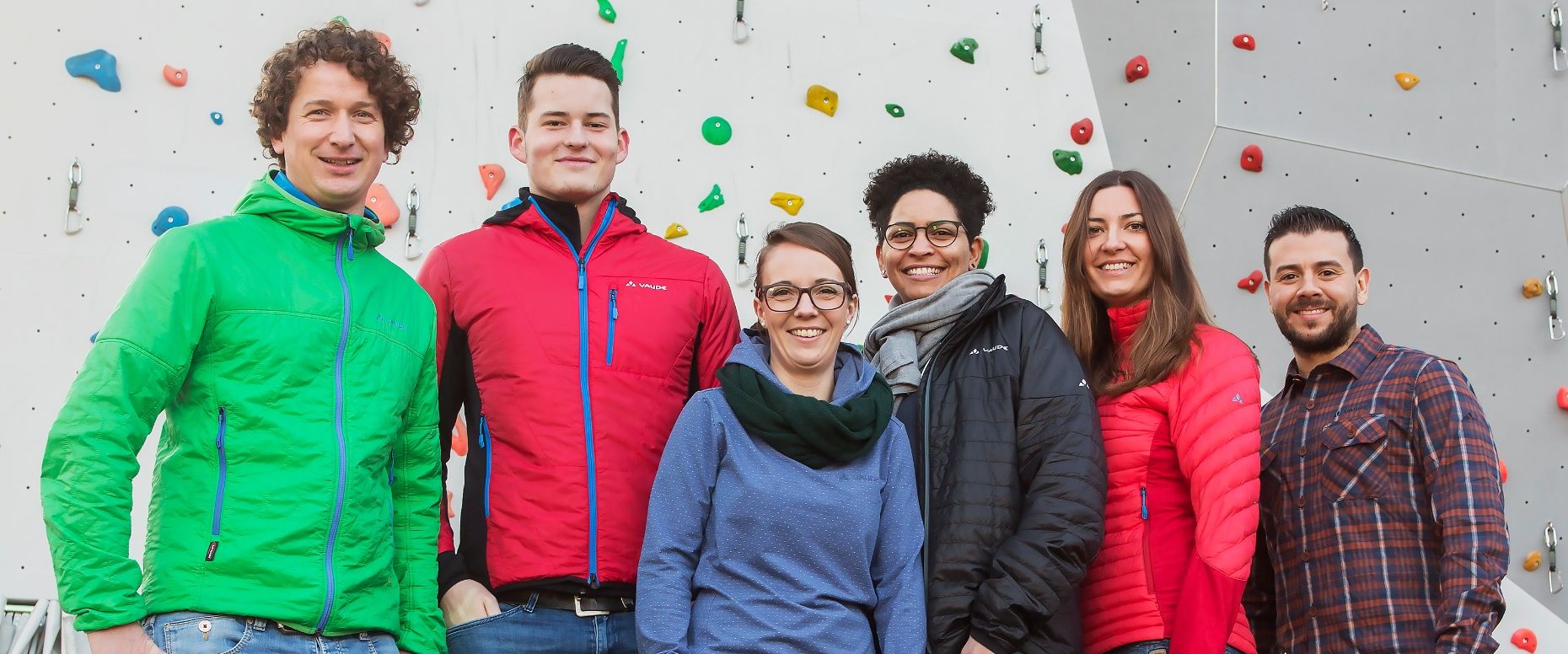
A foundation of trust
Want to know how we do it?
- We provide training for our employees and managers so that their collaboration is based on cooperation and equal standing rather than hierarchy and rigid rules. Creating relationships that are active and constructive is of central importance.
- We set great store by transparency and the active participation of our employees. We make this possible through our social intranet (Camp), common open spaces, workshops and information events.
- We involve our employee representatives in personnel policy developments and decisions.
- Everyone can actively participate in our Idea Management Program, “Steps”.
- We work together to create a self-directed organization. This means, for example, that restructuring is usually developed and implemented with the participation of stakeholders rather than from the top down.
- Interdisciplinary, cross-hierarchy and self-directed collaborations are encouraged and promoted.
Want the specifics?
VAUDE is a highly values-based company and we live out these values in our daily interactions. Trust is one of our core values: We trust our employees and support, encourage and challenge them so that they are able and motivated to perform their best.
This confidence is the foundation for a trusting and appreciative form of cooperation between companies and employees. At the same time, it facilitates growth and development on both sides.
Our culture of trust is based on the assumption that our employees will value this trust, will be committed to their work, and will act appropriately. Specifically, this means that we assume our employees will live up to the trust that is placed in them and that they will in turn have confidence in the company. We reviewed these assumptions in a study by the University of St. Gallen, Switzerland, in 2015, which – in their interpretation – identified VAUDE as a "Trust Organization." Satisfied employees are motivated.
In 2016 our Wegweiser Code of Conduct was jointly developed and made available to all employees in order to provide better guidance regarding what appropriate behavior within the context of our culture can mean in different contexts. This also provides our employees with support and guidance regarding compliance with the law and ethical conduct (e.g. anti-corruption).

»Our culture of trust is often real (and time-consuming) interpersonal work. It pays off in appreciative and creative working relationships.«
We trust all employees
- We understand the fundamental importance of trust for a modern, innovative, and sustainably oriented company. Likewise, we understand the positive importance of trust for human development: Employees feel safe and comfortable when they experience trust.
- Our culture of trust is an essential part of our corporate culture and values and the two interact with each other.
- We understand the diverse components that need to be established in terms of a lived culture of trust and are aware of the important role that the company management has in this process.
In 2015 we developed a process with various focal points and escalation levels for our employees to identify potential conflicts and defuse them through dialog. This process has been used successfully many times since, and is an indication that the defined process actually works. More drastic violations are treated with the current legal instruments for employees (warnings, termination).
Furthermore, most of our employees have participated in the training series "Self-efficacy as a basis for trust and innovation." (Training and professional development) and some groups, such as our employee representatives, have also taken part in an enhanced, role-specific form. The fundamental idea is that these “culture bearers” become established as trustworthy contact persons. Potential conflicts can thus be identified at an early stage. We have already had good experience with this. For example, in the past, conflicts could be identified in teams and defused by means of coaching and team development.
Our employee representatives
Our employee representative program has been in place since 2016. It is comprised of five democratically elected representatives from various areas of the company (commercial and industrial), who initially remain in office for 4 years. This team is supplemented by the respective elected spokesperson of our trainee personnel.
In an intensive workshop and/or team coaching session, the employee representatives developed guidelines and standards for their own working methods and the execution of their role(s). Since then, they have been in close contact with the company's management, are involved in decision-making processes, represent the concerns of employees and play a mediation role in conflict situations.

Transparent communication
A culture of trust also requires, for example, that organizational changes affecting our employees be announced in a timely manner.
There are no minimum notification periods for this. All organizational changes such as new positions, internal job changes or reorganization of departments are published on the internal online communication platform (Camp), which all employees have access to.
This is also where changes to occupational safety laws which require public notice, are automatically made available every year by the Arbeitgeberbibliothek (a German Internet platform.)
In addition, every employee can also actively participate in communication on our intranet. All content can be commented upon and rated. Furthermore, all employees are able to create their own content and they take advantage of this opportunity regularly.
Data protection at VAUDE
In 2018, a total of 17 workshops were held with employees from all areas in which the main features of the DSGVO and its relevance for VAUDE employees were communicated. The workshops enabled us to reach approx. 85 % of all employees. The workshops will be continued in 2019. In addition, individual areas or projects were accompanied more intensively, particularly the DSGVO-compliant implementation of technical changes by our IT department. All corporate divisions were able to obtain needs-based advice at all times and this was actively used.
| GRI: | 103-1 |
| GRI: | 103-2 |
| GRI: | 402-1 |




